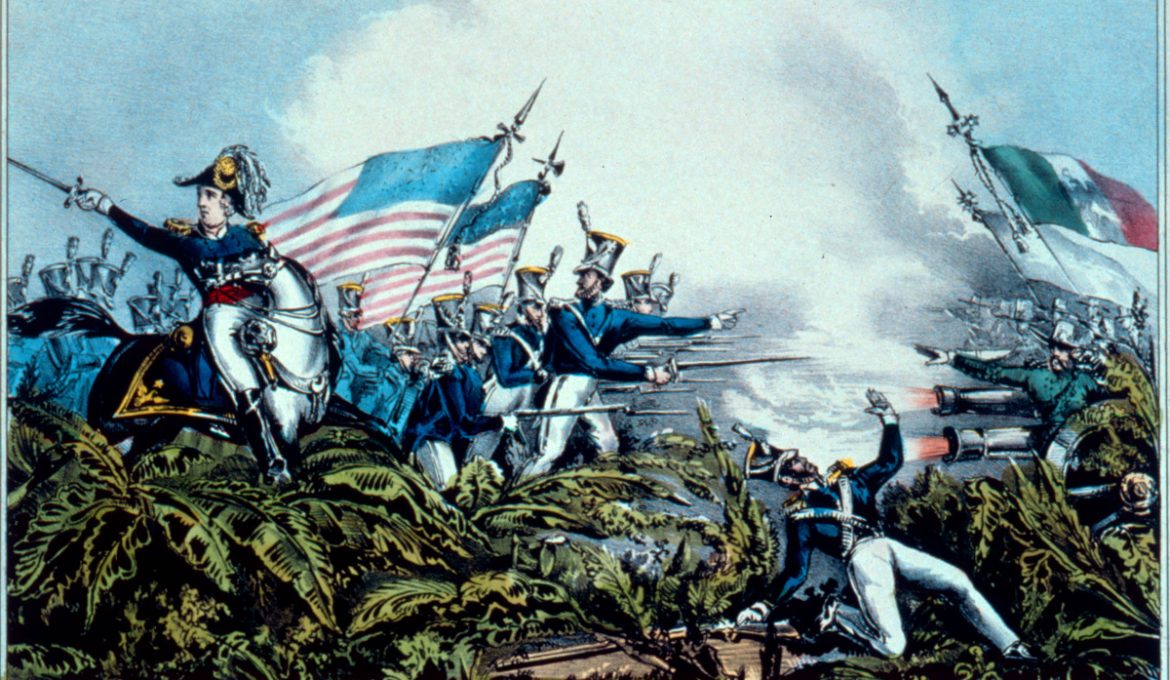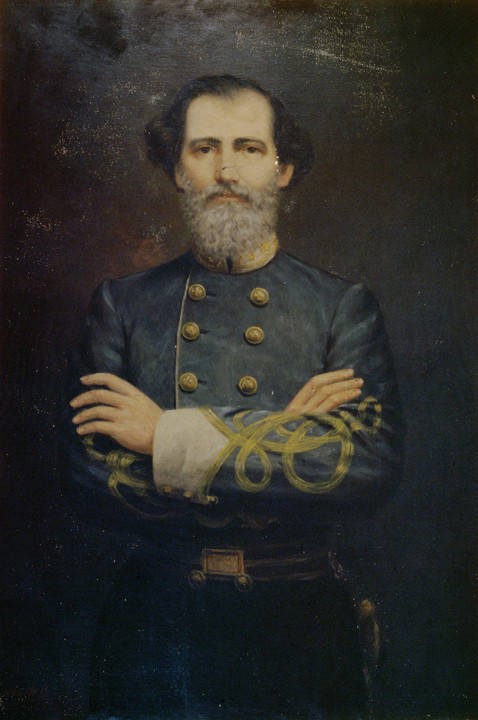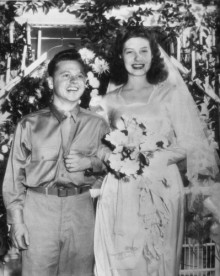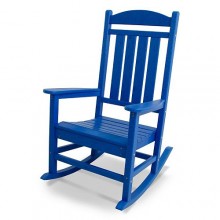MEXICAN WAR REMINISCENCES
Part I
By Judge Zo. S. Cook
(These several contributions cover the period of February to April 1897, and were made to the Wilcox Progressive Era, published at Camden in several news articles – They have been transcribed with no spelling or grammar corrections)
Article 1
Thinking that your readers might be interested in this subject, if you will permit it, I will give a little history of one company that went from Wilcox County.
Independent Province
This war grew out of the annexation of Texas to the United States in 1845. Texas before this, from 1836 to the date of annexation, was an independent province. It was inhabited largely by people who had immigrated to that province before and during its independence. Mexico was never satisfied with the revolt, giving Texas this independence, and disputed the line separating Texas from the mother country. The strip was that intervening between rivers Neuces and Rio Grand. It was of a barren nature, really not worth fighting for. Texas, however, claimed it by right of conquest in her fight for independence. Mexico immediately on the eve of annexation occupied this strip of country. To dispossess it brought about a conflict between Mexico and the United States. Thinking the conflict would be of short duration, the United States called for six months volunteers. The time elapsed and the war was not yet over. Another call was made for twelve months men. This time also expired and the end was not yet. The task was undertaken then to conquer the country by the United States, and to this end, volunteers were called for to serve five years or till the war was closed.
Company of Volunteers
On this call Capt. Thos. E. Irby raised a company of volunteers from this (Wilcox) and adjoining counties. The army was filled up rapidly on the first two calls for six and twelve months men, but not so the last. Five years was a long time for men to be away from friends and loved ones at home, to be in a foreign country in a tropical climate. Capt Irby, therefore, had no easy time in getting up the company. He at first thought it could be raised in Wilcox County, but could get but fifty men, not enough for a full company.
Other counties, Dallas and Autauga particularly, were trying the same but they also failed. Finally a proposition was made to unite all the squads, thus forming one company, which was agreed on. The various squads assembled in Mobile early in November 1847, and agreed on a line of organization. Capt. Thos. E. Irby was chosen captain, he having the largest following James A. and Andrew Bogle from the Dallas squad were chosen first and second lieutenants, and George Lynch of Wilcox third lieutenant. The noncommissioned officers were all taken from Wilcox County as follows: J. E. Thompson, orderly or first sergeant, Jos. R. Mason second, M. R. Bonham third and Zo. S. Cook fourth sergeants. James Files, B. D. Dunnam, Wm. Rivers and Geo. Miller were the corporals.
Col. Tennant Lomax 1820-1862 during Civil War (Alabama Department of Archives and History)
Other Companies
James R. Malone and Alex T. Hawthorne were members of this company, but on being mustered into service at Mobile, were immediately detached on Recruiting Service, when they proceeded to get up another company, succeeding in which, they were elected lieutenants in that company. This was Blanton McAlpin’s company and was raised in and around Mobile, where McAlpin was well and popularly known. He was chosen captain. His company was founded of the roughest elements in Mobile, composed mostly of Irish, Italians and Spaniards. Their captain was a leader with this class in Mobile, hence his success in raising his company. This was the last company raised for this war, and completed a battalion of five companies.
Capt. John G. Barr had a company from Tuscaloosa, Capt. Gibbs one from Autauga, Capt. Irby one from Wilcox, and Capt. Tenent Lomax one from Montgomery. The Battalion was known as the First Battalion of Alabama Volunteers for 5 years of the war. Not being sufficient for a regiment, the command was entitled to but one field officer, that of Major J. J. Seibles was elected Major, and having sole command of a part of a regiment, was brevetted Lieut. Colonel. Lieutenant Copeland of Capt. Lomax’s company was appointed adjutant, but afterwards resigned when Lieut. Hardaway of Capt. Gibb’s company was appointed to fill the place which he continued to do to the close of the war. Lieut James Bogle was appointed commissary officer.
Quartered in old Hitchcock Press
During the organization of the battalion, the men were quartered in the old Hitchcock press, in the southern portion of Mobile, near where the L. & N. R. R. shops are located, The quarters were under a large shed used for storing cotton and were well suited for the purpose, being roomy and comfortable. Not only this, the boys could be kept under control, there being but one place to pass in and out. Thus by proper guards men could be kept from running out at night and giving the town a vermillion hue. Notwithstanding all the vigilance that could be brought to bear, some of the boys would get out and have a merry time. They became almost a nuisance. Finally, company was ordered to camp in the then piney woods across Three Mile Creek north of the city, about four miles on what was known as Telegraph Road. Here they remained under strict surveillance till the last of December when they embarked for their destination, Mexico: White in this camp, which was named for Toulmin, the soldiers were drilled daily by the officers. This was rigid and kept up for hours daily, giving the men but little time or inclination to frolic or run about the city.
SOURCE
The Alabama Historical Quarterly, Vol. 19, Nos. 03 & 04, Fall and Winter Issue 1957
ALABAMA REVOLUTIONARY WAR SOLDIERS VOLUME I – Many of these soldiers received grants in Georgia, Tennessee and the Mississipi Territory, parts of which later became the state of Alabama.
This book includes genealogical and biographical information on 26 Revolutionary Soldiers who were in early Alabama and/or collected military pensions for their service.







All great unless you know most Americans really didn’t see gun smoke. Read the State Papers.